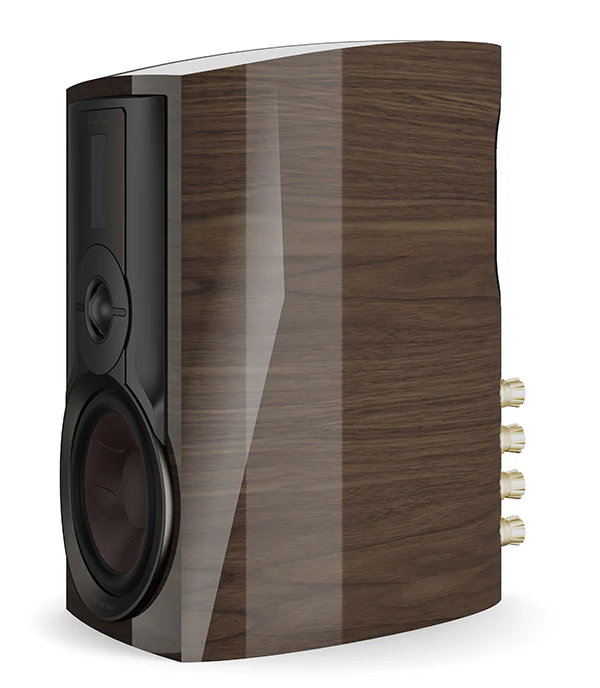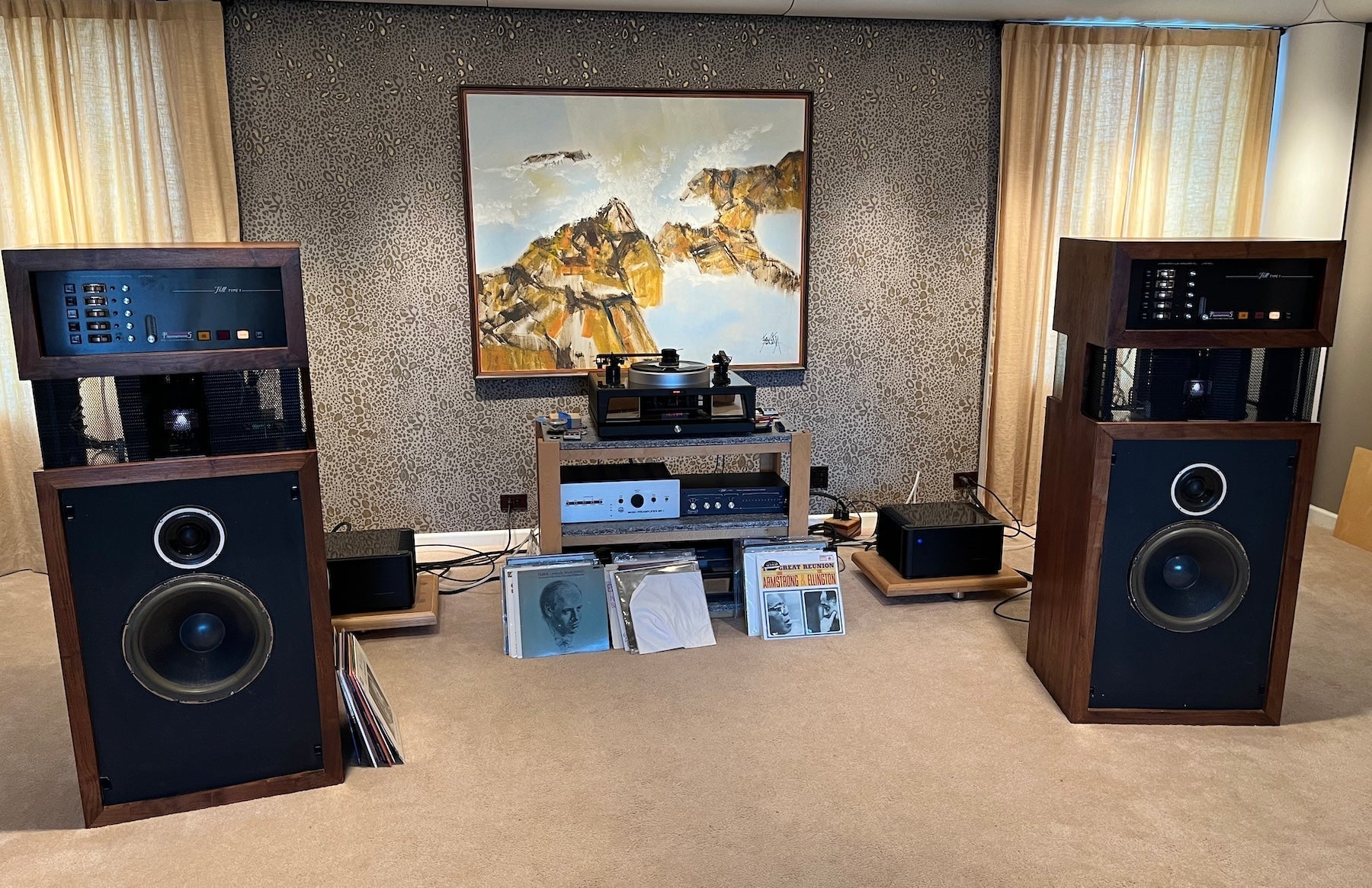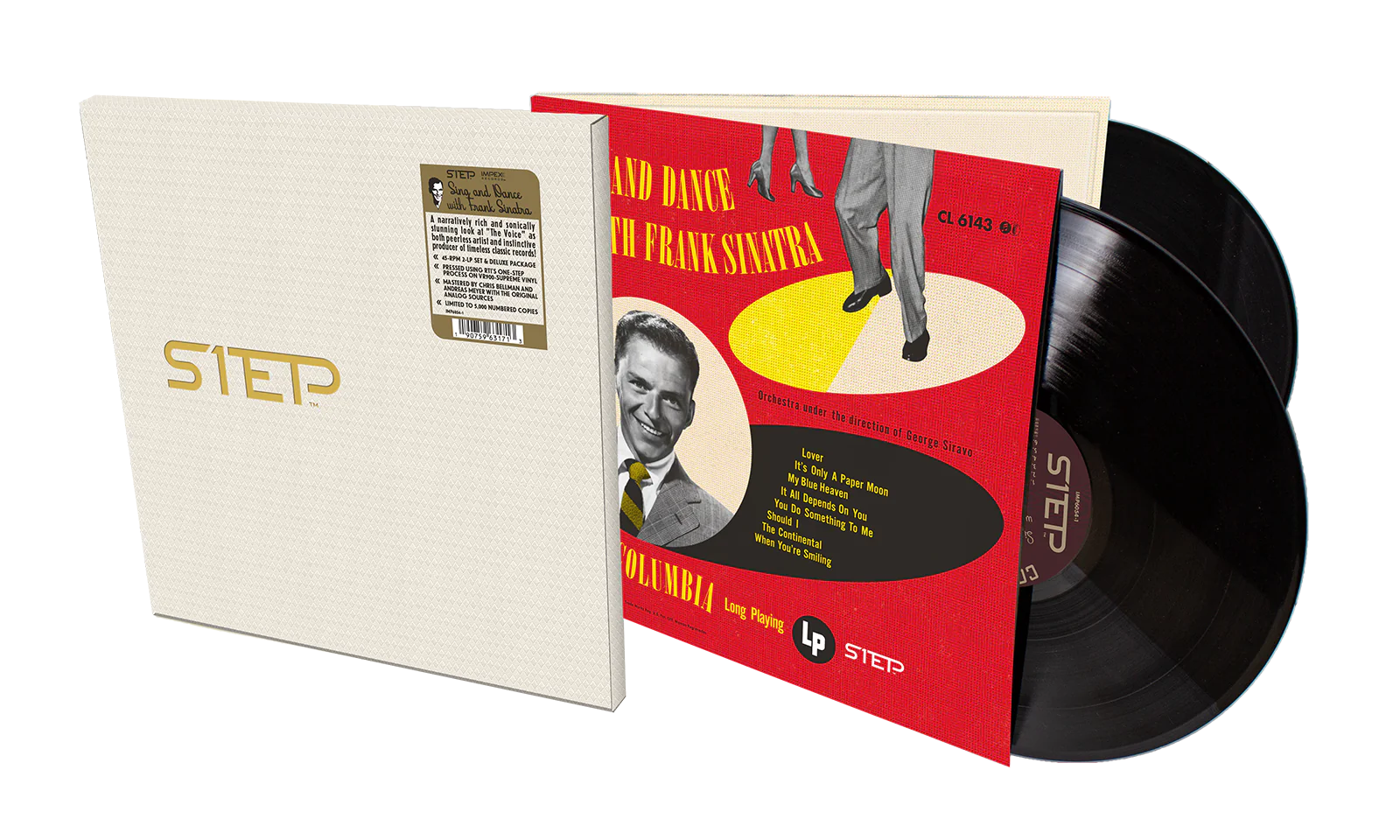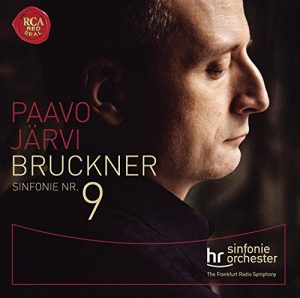Kraftwerk's influence on today's pop music is so pervasive, the band is so historically important, and so much has been written about them already that doing an introduction here almost seems clichéd. But for those who haven't been plugged in: they more or less invented electronic pop music.
As such, they've had an incalculable influence on contemporary pop, with their pioneering use of synthesizers, hypnotic metronomic electronic beats, vocoders (those "robot" vocals of which Auto-Tune might be considered a direct descendant), repetition, sampling, minimalism and electronic sound processing. Not to mention their retro-futuristic visual aesthetic and unified gesamtkunstwerk ("total artwork") presentation. The sound quality of their albums is uniformly stunning. No other electronic band is as elegant as Kraftwerk.
Every, and I mean every, techno, house, dance, club music etc. artist owes their existence to Kraftwerk as do bands like New Order, Depeche Mode, Orchestral Manoeuvres in the Dark, Daft Punk and countless others—a fact most of them have readily admitted. Two Kraftwerk songs alone, "Numbers" and "Trans Europe Express," set the rhythmic template for much of hip-hop. (The 1982 hip-hop smash "Planet Rock" by Afrika Bambaataa and the Soul Sonic Force stole from both, which was later resolved in a settlement.) Their all-electronic sound was radical, literally unheard of in the 1970s in an era when guitars and strutting rock stars dominated rock music.
I thought I'd make this look at Kraftwerk a little more on the personal side. And of course it's tempered by the loss of founding member Florian Schneider on April 21, who as the band's "sound fetishist" must at this point be considered one of the most influential pop musicians of all time.
The band is one of my favorites, but that wasn't always the case. I first heard their unlikely hit "Autobahn" on the radio when it came out in 1974 and thought it was a pleasant-enough almost-novelty song. I remember hearing it in some store in the Smith Haven Mall.
In 1975 I read an interview by Lester Bangs in Creem where Kraftwerk founding (and sole original) member Ralf Hütter said he thought Blue Öyster Cult was "funny." What? How dare him! At the time I revered BÖC in the way only an adolescent rock-star-worshipping male can. (Of course, Hütter was, in a large respect, right, both bands having a distinct tongue-in-cheek aspect to their respective oeuvres.)
Kraftwerk wasn't on my radar again until the late 1970s when I was at a Halloween party mostly attended by a bunch of computer nerds and their wives and significant others. I was in a bad mood…unemployed, wearing a crappy thrown-together costume, girlfriend-less…when some boring, repetitive music started playing on a crappy stereo. One of the nerds started going on and on about how great this band Kraftwerk was. "The music sounds simple, but it changes over time. Listen to how good those synthesizers sound." (This on an AM-radio-quality stereo.) "It's genius!" Already predisposed to dislike them, the album playing, The Man-Machine, didn't do anything to convince me otherwise.
But…fast forward to 1981. A bunch of friends were driving to a show at the Left Bank, a New Wave club in Mount Vernon, New York. We were listening to WNEW-FM and all of a sudden this incredible electro-pop song came on the radio, filled with bloops and bleeps and otherworldly synth sounds, driven by an irresistible mechano-beat. As the song faded out I yelled out, "Quiet! I have to hear who this is!" The announcer stated, "That was the new single ‘Pocket Calculator' by Kraftwerk." Kraftwerk? That band I turned my nose up at? Wait a minute! I bought the single (a Japanese import 45) immediately thereafter.
Maybe a year later I was at a party. I had been…partying. Around 1 or 2 am I was ready to go to sleep and not about to drive home. A woman friend who lived in the house offered to let me crash on her bed with her. As I was lying there about to drift off in an altered state, she said, "let's listen to some music to go to sleep to." (Put your imaginations to rest—nothing untoward happened.) She put on Computer World, the album with "Pocket Calculator." The first hypnotic synth sounds percolated out of the speakers. I was riveted. It sounded like something from an alien race from another galaxy. That night I finally, really "got" Kraftwerk. What are these sounds? What is this music?
I soon went on a quest to buy every Kraftwerk album in both English and German-language versions. The more I've listened, the more I've grown to like, then appreciate, then be continually amazed by this band.
Here's a brief tour of their albums. (We'll skip the early compilation albums Exceller 8 and Electro Kinetik.) I prefer the German-language versions; they sound more, well, Kraftwerkian to me.
Kraftwerk, Kraftwerk 2, Ralf and Florian (Ralf und Florian 1970 - 1973)
These first three proto-Kraftwerk albums are considered "archaeology" by Hütter, and the first two, with their wandering jams and use of guitars, bass, acoustic drums and other conventional instruments bear little resemblance to the band's future sound. In some parts and more so with Ralf and Florian, though, in tracks like "Kristallo" ("Crystals") and "Tansmusik," ("Dance Music") we start to hear elements of the band's later work—drum machines and heavier use of electronic keyboards, though pre-synthesizer. And the album contains one of their most beautiful if incongruous songs: "Ananas Symphonie" ("Pineapple Symphony"), featuring almost 14 minutes of…lap steel guitar.
Autobahn (1974)
The international pop smash breakthrough. The album-side-long title track is one of the most perfectly-realized pieces of program music ever conceived – it really does sound like a drive down the motorway with its loping beat, hypnotic "Wir fahren, fahren, fahren auf der Autobahn" vocal chant, Minimoog, ARP Odyssey and EMA Synthi AKS synthesizers mimicking the sounds of cars and trucks, and the use of repeating melodies and phrases, which would later become cemented as Kraftwerk hallmarks. This was the last Kraftwerk album to feature electric guitar, violin, flute and other "standard" instruments.
It's also a sonic blockbuster, one of the first to appear on The Absolute Sound Super Disc list (and still there). On a good pressing or mastering, the bass is subterranean, the soundscape vast. There's even a section where Kraftwerk tunes in the car radio to listen to themselves, and on a top-notch system, it sounds like you're in a car listening to a car radio while driving with the sounds of the Autobahn surrounding you. The rest of Autobahn is also sublime.
Radio-Activity (Radio-Aktivität) (1975)
This album about radio waves and radioactivity might be the strangest-sounding of the lineup. It's the first album to feature the "classic" lineup of Hütter, Schneider, Karl Bartos and Wolfgang Flür, the latter two on electronic percussion. There are only a few conventional "songs," interspersed with odd blips, vocoded spoken intervals and other sonic weirdness. Oh, but those songs – "Radioactivity" is an ominous Vako Orchestron-driven warning about the potential dangers of nuclear power. "Airwaves" was the hit that wasn't, maybe because of its simplistic lyrics, another future Kraftwerk hallmark. And the closer, "Ohm Sweet Ohm" is a gorgeous way to fade out the album.
Trans-Europe Express (Trans-Europa Express. 1977)
If Autobahn was a breakthrough, this was a landmark, chosen by many as Kraftwerk's best. The influence of the title track cannot be overstated. The group took major strides in refining their sparse, yet multifaceted sonic and rhythmic approach (the title track was about a train, after all). The use of the sequencer appeared as a key propulsive and melodic instrument. This album, perhaps Kraftwerk's "friendliest" and most accessible, has it all—sonic innovation and incredible sound quality, warm, inviting melodies ("Europe Endless," "Showroom Dummies"), more than a touch of that sly humor (although "The Hall of Mirrors" is starkly foreboding), and it's simultaneously nostalgic and light years ahead of its time.
The Man-Machine (Die Mensch-Maschine. 1978)
Perhaps no album has ever been so appropriately titled. This really does sound like an inevitable collaboration of man and machine. One enhances the other. Here, the band took another evolution into their hallmark mechanistic sound and to becoming even more firmly and unmistakably Kraftwerkian. The song titles: "The Robots," "Spacelab," "The Man-Machine" tell the tale, the latter putting the concept of "cybernetic" into perfectly-realized musical form. And the album yielded a bona-fide hit, "The Model," maybe the closest Kraftwerk would come to conventional pop music. The sound is demonstration-quality rich, warm, extended, textured and compelling.
Computer World (Computerwelt. 1981)
Thirty-nine years later, the album still sounds vastly ahead of its time. Where do I begin? If The Man-Machine was a major evolution, Computer World is a quantum sonic and musical leap of an almost incomprehensible nature—were it not for the fact that it's right here for all to listen to. The sounds are otherworldly, fantastic in the literal sense, mind-blowing. The music and melodies span from regal ("Computer World") to playful ("Pocket Calculator," "Numbers") to wistful ("Computer Love") to almost too much for feeble human minds to comprehend ("Home Computer"). Their use of the sequencer as a rhythmically compelling element can only be described as remarkable.
While others pick Trans-Europe Express as Kraftwerk's best, for me, Computer World is their towering masterwork. And the sound quality is out of this world, a vast, expansive soundscape from the ever-morphing bass to the alien-machine rhythmic clacks. Deceptively simple at first, but the more you listen, the more little sonic details you hear. And yes, the album is as predictive of today's world as everyone says it is, right down to the idea of computer dating years before others could even frame the concept.
Electric Café (later renamed Techno Pop with revised track listing. 1986)
Perhaps Kraftwerk knew that after the astonishing advancement of Computer World the only other possible course was a musically minimalist detour. Much has been made of the fact that Ralf Hütter was involved in a serious cycling accident at the time, and the fact that the rest of the pop music world from the Human League to Heaven 17 to Donna Summer was catching up to them sonically. In any case, after Computer World, Electric Café was seen as a regression, and I was disappointed with it at first, having expected a continuation of the astonishing sounds of the former.
Yet in the ensuing decades I've come to embrace it and really dig it, especially the side-long opening suite of "Boing Boom Tschak," "Techno Pop" and the now-classic "Musique Non Stop." (I could live without the "scrolling through the presets" parts of "Techno Pop," but even Kraftwerk revised that down the road.) It draws you through an unhurried musical progression. The sound is more polished-metal, starker (the use of digital instruments like Yamaha FM-synthesis hardware, the LinnDrum, and the E-Mu Emulator II sampler contribute). And "Sex Object," especially in its original German "Sex Objekt," surely must have been tongue-in-cheek, an odd mix of aloof vocal delivery, sinister aura and Ralf's "who, me?" vulnerability. Or maybe you'll just think it's silly. The re-issued Techno Pop offers a slightly revised track complement, with a remixed "The Telephone Call" and the added "House Phone." The closing "Electric Café" gives us a few minutes of those Kraftwerkian bloops and bleeps and hints at what the rest of the album might have been had they gone that route—and where the band was headed.
The Mix (1991)
This remix album of previous Kraftwerk classics either feels unnecessary, considering the musical and sonic perfection of the previous albums, or prescient, considering that these retooled arrangements formed the basis for their live performances following. (I vote for the latter, seeing The Mix as a sort of alternate-reality Kraftwerk album.) Karl Bartos and Wolfgang Flür had left, to be replaced by Fritz Hilpert (still with the band today) and Fernando Abrantes. Not strictly a greatest hits album ("The Model" isn't here), it features revamped versions of classic tracks like "The Robots," "Trans-Europe Express," "Computer Love," an amped-up version of "Radioactivity," and "Autobahn." Like every Kraftwerk album, the audio quality is superb, with a myriad of new digitally-precise sounds, beats and musical ideas spread out on an expansive sound field.
Tour de France Soundtracks (2003, later retitled Tour de France)
After more than a decade of wondering whether Kraftwerk would ever release another album came Tour de France Soundtracks. Of course, the expectation level could not have been higher. It was supposed to have coincided with the 100th anniversary of the bike race but did not make the date. And the album is a worthy addition to the canon, with the extended "Prologue" and "Tour de France Étape 1, 2 and 3" suite offering an irresistible mix of the new sounds I was hoping for on "Electric Café" and a rhythmic drive perhaps unequalled by any previous albums, and with Kraftwerk that's saying something. There's a remake of the title track, which for inexplicable reasons had never appeared on an album before, which I wouldn't call better or worse, just different. "La Forme" is Kraftwerk at their most majestic, and "Chrono" and "Titanium" have that otherworldly sound that no other band will ever produce.
Minimum-Maximum (2005, available in English and German)
Finally, an official Kraftwerk live album, available in DVD video as well as audio formats. A double, so it's fairly comprehensive with 22 tracks including most of the "hits." As anyone who's seen the band knows (I've been lucky enough to have seen them eight times including one of the legendary MoMA Kraftwerk-practically-in-your-living-room performances, courtesy of winning a Volkswagen contest), Kraftwerk is continually updating and tweaking their sounds, so these are fresh takes on the classics. Need I even mention that the sound quality is exceptional. Oddly, the surround sound is in DTS 5.1 only—I'm guessing that at the time, Dolby Digital wasn't good enough for the sonic perfectionists from Düsseldorf.
If you want to add just one Kraftwerk album to your collection you would not go wrong with this. Also, Florian Schneider left the band after this album, making Minimum-Maximum the only release where you'll get to see and hear him "live."
The Catalogue (Der Katalog. 2009)
This limited-edition box set included the first "officially recognized" eight albums from Autobahn onward, remastered on CD. As Hütter noted a few years earlier, the original tapes needed digital transferring, remastering and restoration. They are presented here with album cover and other artwork that is mostly different from the originals; not surprisingly, more simplified and minimal. The sound quality is as good as CD gets and arguably improved in some cases, maybe not in others, although good original vinyl pressings are also superb. I'm not going to dwell on it here because this set has become out-of-print unobtanium (and mine's not for sale) – at the moment there's a copy on eBay and the seller's asking $1,409.16!
3-D The Catalogue (3-D Der Katalog. 2017)
Another Kraftwerkian move—follow a live album with…another live album, 12 years later. But what a live album—it's available in Blu-ray (video and audio), hi-res download and other formats, and the unabbreviated versions encompass full concert recordings of all eight previous studio albums from Autobahn onward. There's even a surprisingly effective "Headphone Surround 3-D" disc of selected cuts. The Blu-ray packaging is sumptuous and includes a 228-page book.
Since, as noted, Kraftwerk continually re-works their sound, these arrangements have an up-to-the-second modernistic feel about them. This album also features the current lineup of Ralf Hütter, long-time members Fritz Hilpert and Henning Schmitz, and Falk Grieffenhagen. Some of the songs are shorter than the original versions, but this is, after all, the way they were presented in concert.
While the sound is utterly stunning (and one of the most convincing cases for surround sound music listening you'll ever hear, especially if you're lucky enough to have a Dolby Atmos system), at times—in my opinion and YMMV—I feel like the bass on some tracks is too strong, a trend that seems to permeate much of modern music these days. And since this isn't an attempt to reproduce "real" sounds, it's strictly a matter of taste. Yet the sound is nothing less than incredible, coming from everywhere and anywhere, the sound space ever-changing and morphing. Oh yeah—if you happen to have a 3-D TV or video setup, you can enjoy the same 3-D visuals as a live concert. In fact, at least one review feels that this is the best Kraftwerk disc to have. I say listen to them all.
Header image: Kraftwerk promotional photo.
2022 Update to my article above
Remixes (2020)
In 2020 Kraftwerk released Remixes, a collection of 19 remixes of songs by people like Francois Kevorkian and William Orbit, and the band itself. The big news is twofold: first and foremost, the inclusion of "Non Stop," which is pretty much a new song, since it takes a short melody that was previously only used in an MTV jingle in the 1980s (and largely forgotten) and expands it to an eight-minute-plus track. Considering Kraftwerk's glacial pace of releasing new material, this satisfying if not groundbreaking track is manna for Kraftwerk acolytes. The rest of the album comprises moderate tweaks to almost unrecognizable re-workings of remixes that were originally available only on 12-inch 45s and limited-edition CDs, conveniently gathering them into one accessible album for those who likely missed this material the first time around.
The other major news is that the album, previously available via streaming services only, will be issued on CD and (yes!) a three-LP set on March 25. Kraftwerk fanatic that I am, I think I already have all the tracks on Remixes, but I pre-ordered the CD anyway and I know it's only a matter of time before I break down for the vinyl set. Like all Kraftwerk releases, the sound is out-of-this-world stunning, with every subterranean bass drop and alien spacecraft bleep and blip rendered in pristine, spacious, vast, detailed sound.
Link to "Non Stop" on YouTube:
Link to original article:
https://www.psaudio.com/copper/article/the-incalculable-influence-of-kraftwerk/





































